 Moral Cer tainty and the F oundations of Moralit y Neil OHara Moral Certainty and the Foundations of Morality Neil OHara Moral Certainty and the Foundations of Morality Neil OHara Independent Scholar Luton, UK ISBN 978-3-319-75443-7 ISBN 978-3-319-75444-4 (eBook) https://doi.org/10.1007/978-3-319-75444-4 Library of Congress Control Number: 2018934855 The Editor(s) (if applicable) and The Author(s) 2018 This work is subject to copyright. All rights are solely and exclusively licensed by the Publisher, whether the whole or part of the material is concerned, specifically the rights of translation, reprinting, reuse of illustrations, recitation, broadcasting, reproduction on microfilms or in any other physical way, and transmission or information storage and retrieval, electronic adaptation, computer software, or by similar or dissimilar methodology now known or hereafter developed. The use of general descriptive names, registered names, trademarks, service marks, etc. in this publication does not imply, even in the absence of a specific statement, that such names are exempt from the relevant protective laws and regulations and therefore free for general use. The publisher, the authors and the editors are safe to assume that the advice and information in this book are believed to be true and accurate at the date of publication. Neither the publisher nor the authors or the editors give a warranty, express or implied, with respect to the material contained herein or for any errors or omissions that may have been made.
Moral Cer tainty and the F oundations of Moralit y Neil OHara Moral Certainty and the Foundations of Morality Neil OHara Moral Certainty and the Foundations of Morality Neil OHara Independent Scholar Luton, UK ISBN 978-3-319-75443-7 ISBN 978-3-319-75444-4 (eBook) https://doi.org/10.1007/978-3-319-75444-4 Library of Congress Control Number: 2018934855 The Editor(s) (if applicable) and The Author(s) 2018 This work is subject to copyright. All rights are solely and exclusively licensed by the Publisher, whether the whole or part of the material is concerned, specifically the rights of translation, reprinting, reuse of illustrations, recitation, broadcasting, reproduction on microfilms or in any other physical way, and transmission or information storage and retrieval, electronic adaptation, computer software, or by similar or dissimilar methodology now known or hereafter developed. The use of general descriptive names, registered names, trademarks, service marks, etc. in this publication does not imply, even in the absence of a specific statement, that such names are exempt from the relevant protective laws and regulations and therefore free for general use. The publisher, the authors and the editors are safe to assume that the advice and information in this book are believed to be true and accurate at the date of publication. Neither the publisher nor the authors or the editors give a warranty, express or implied, with respect to the material contained herein or for any errors or omissions that may have been made.
The publisher remains neutral with regard to jurisdictional claims in published maps and institutional affiliations. Cover credit: Mellok Printed on acid-free paper This Palgrave Macmillan imprint is published by the registered company Springer International Publishing AG part of Springer Nature The registered company address is: Gewerbestrasse 11, 6330 Cham, Switzerland Preface Hard problems are sometimes best tackled obliquely. Why be moral? What is the status of moral language? Isnt morality all relative to culture or person? These are all hard problems of moral philosophy, and it is important that we try to tackle them. In this book I will seek to shed light on these problems by getting clear about the basic foundations of our moral thinking. In getting clear about foundations, solutions to some of these hard problems will, I hope, be suggested and ways for ward opened up. In particular, I will be defending a view of morality as essentially other-regarding, recasting questions like Why be moral? as questions about why we should regard others.
Then, I want to sug gest that the source of our other-regarding thought is a phenomenon I call primary recognition. By this I mean the unmediated experience of seeing other humans as those due moral concern. This experience is, I will argue, an incorrigible and necessary part of all functioning human beings. The third strand of my project here will be to locate all of this within a wider discussion about the Wittgensteinian notion of basic moral certain. By understanding basic moral certainty in its universal and local forms, we open the way to understanding the diversity, and vviPreface sometime incommensurability, of our various moral systems in a way that does not require full-blown moral relativism. The main business of this book will be to give a strong account of these three elements: morality as other-regarding, as having its source in primary recognition and its being grounded in basic moral certainties.
With this picture in place I will suggest some ways in which it can help solve, or dissolve, some of the hard problems in contemporary moral philosophy. Before we get started it will be well to give a plan of what is to follow. In the first chapter I will set out the Wittgensteinian picture of basic certainty that will inform what follows. This will mean outlining and defending three characteristics of basic certainties, all somewhat con troversial in the literature: their indubitability, their being non-rational and their being enacted. I lay out a position on the relationship between basic certainties and experience, particularly stressing Wittgensteins realization that our basic certainties are not justified by experience but are conditioned by it. This helps us understand how basic certainties can be beyond the practice of justification and doubt, yet still remain con nected to the world of experience.
In Chapter 2, I explore the notion of primary recognition and argue that it is the source of all our moral thinking. It amounts to an indubitable certainty that This one before me is owed some consideration or that I cannot treat them as a mere object. In the following chap ter I clarify what I mean by the term moral, arguing, via a Bernard Williams-type distinction between the ethical and moral, that we should accept an account of morality as other-regarding. This account will draw substantially on the work of Danish philosopher/theologian Knud Ejler Lgstrup in seeing morality as thought about our relations with others, or thought about the good of another as opposed to (pru dential) thought about our own good. This will help to establish the objectivity of morality, showing that it has an objective aimthe good of the other. In Chapters 4 and 5 I defend the core distinction between local and universal moral certainties.
This distinction will allow me to provide a better account of the variety of moral thought, and the interminability Prefacevii of some moral disagreement, than moral relativism can. In Chapter 4 I set out two examples of universal moral certainty: (i) the belief that at least some killings are wrong (K); and (ii) the belief that some wrongs are more serious/more praiseworthy than others, or put another way that there is some hierarchy to moral values (H). These are necessary, indubitable beliefs for all moral agents, and in that sense are univer sal. Chapter 5 then includes three examples of local moral certainties. These are certainties not held by all human beings, but held as moral certainties by certain groups at certain times. My examples are: (i) the wrongness of pig sacrifice in ancient Judaism; (ii) the rightness of hos pitality for the Pashtun of Afghanistan and northern Pakistan; and (iii) the wrongness of cannibalism for the ancient Greeks.
I will also give a case study of when and why local moral certainties change, and the rela tionship between local moral certainties and the wider context in which they are held. My last chapter will bring out some of the implications of the account I have set out for current metaethics, and some deeper chal lenges to my view. In particular I will consider how what is said here might effect moral theories built on understandings of human beings as amoral in the state of nature (in the Hobbesian tradition), and how it will affect the plausibility of relativist metaethical theories. I will also take time to consider the challenge made by G. E. M.
Anscombe and Alasdair MacIntyre that modern moral thought and action has become disconnected from the grounds that gives it sense. I conclude with some thoughts about how the picture of morality laid out here might be taken forward in the future. Though I take responsibility for the final form of the book many others have helped it take shape in different ways and so deserve thanks. First of all I must acknowledge and thank Danile Moyal-Sharrock, John Lippitt and Chon Tejedor. They more than any others have left their mark on the work and on mealways for the better. All have my gratitude.
I would also like to thank Brendan Larvor for prodding and critiquing me into some of my best work. I gladly acknowledge the help and support provided by Nigel Pleasants, I have benefitted greatly from our discussions on basic moral certainty and other topics.
Next page

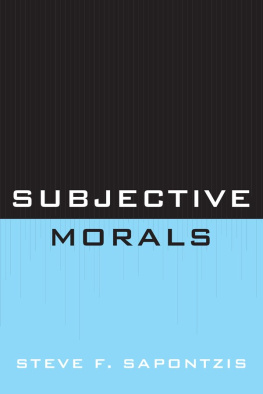
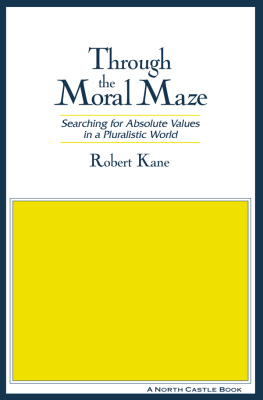

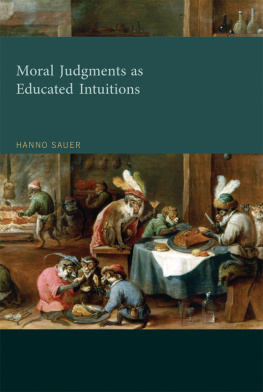
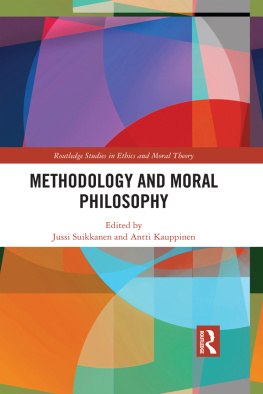
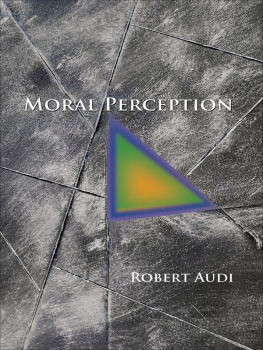
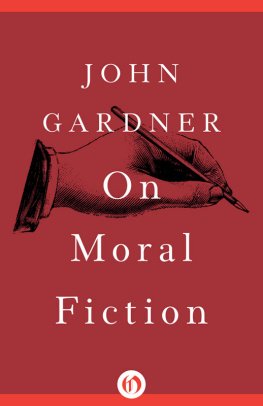
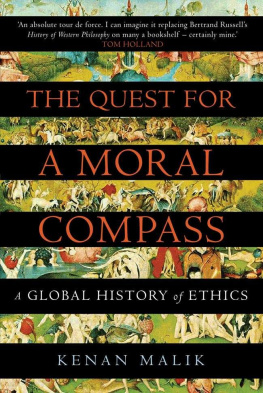
 Moral Cer tainty and the F oundations of Moralit y Neil OHara Moral Certainty and the Foundations of Morality Neil OHara Moral Certainty and the Foundations of Morality Neil OHara Independent Scholar Luton, UK ISBN 978-3-319-75443-7 ISBN 978-3-319-75444-4 (eBook) https://doi.org/10.1007/978-3-319-75444-4 Library of Congress Control Number: 2018934855 The Editor(s) (if applicable) and The Author(s) 2018 This work is subject to copyright. All rights are solely and exclusively licensed by the Publisher, whether the whole or part of the material is concerned, specifically the rights of translation, reprinting, reuse of illustrations, recitation, broadcasting, reproduction on microfilms or in any other physical way, and transmission or information storage and retrieval, electronic adaptation, computer software, or by similar or dissimilar methodology now known or hereafter developed. The use of general descriptive names, registered names, trademarks, service marks, etc. in this publication does not imply, even in the absence of a specific statement, that such names are exempt from the relevant protective laws and regulations and therefore free for general use. The publisher, the authors and the editors are safe to assume that the advice and information in this book are believed to be true and accurate at the date of publication. Neither the publisher nor the authors or the editors give a warranty, express or implied, with respect to the material contained herein or for any errors or omissions that may have been made.
Moral Cer tainty and the F oundations of Moralit y Neil OHara Moral Certainty and the Foundations of Morality Neil OHara Moral Certainty and the Foundations of Morality Neil OHara Independent Scholar Luton, UK ISBN 978-3-319-75443-7 ISBN 978-3-319-75444-4 (eBook) https://doi.org/10.1007/978-3-319-75444-4 Library of Congress Control Number: 2018934855 The Editor(s) (if applicable) and The Author(s) 2018 This work is subject to copyright. All rights are solely and exclusively licensed by the Publisher, whether the whole or part of the material is concerned, specifically the rights of translation, reprinting, reuse of illustrations, recitation, broadcasting, reproduction on microfilms or in any other physical way, and transmission or information storage and retrieval, electronic adaptation, computer software, or by similar or dissimilar methodology now known or hereafter developed. The use of general descriptive names, registered names, trademarks, service marks, etc. in this publication does not imply, even in the absence of a specific statement, that such names are exempt from the relevant protective laws and regulations and therefore free for general use. The publisher, the authors and the editors are safe to assume that the advice and information in this book are believed to be true and accurate at the date of publication. Neither the publisher nor the authors or the editors give a warranty, express or implied, with respect to the material contained herein or for any errors or omissions that may have been made.